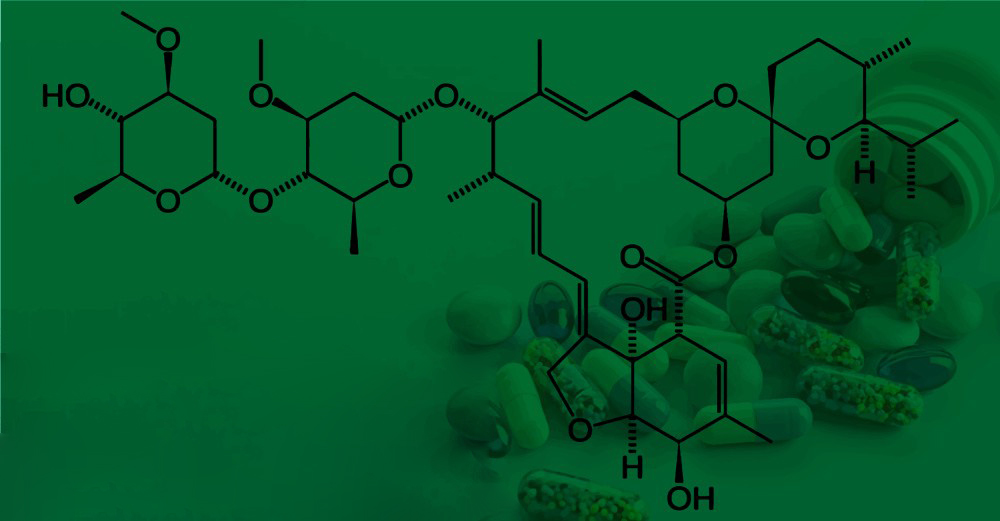Ivermectin is a medication used to treat various parasitic infections in humans and animals. It has gained some attention for its potential off-label use in treating certain viral infections, although its effectiveness for these purposes is still a topic of debate and ongoing research. As of my last update in September 2021, I can provide you with general information about the materials and methods associated with the use of Ivermectin. Keep in mind that developments may have occurred since then, so it’s important to consult up-to-date and reliable sources.
Materials of Ivermectin:
- Ivermectin: The active ingredient, typically available in tablet or topical form. It’s crucial to use the appropriate formulation and dosage as directed by a medical professional.
- Dosage Information: The appropriate dosage varies depending on the condition being treated, the patient’s weight, and other factors. Dosages can range from micrograms to milligrams, and it’s essential to accurately measure and administer the correct amount.
- Medical Supplies: Necessary supplies for administering oral or topical doses, such as syringes, pill cutters, and applicators.
- Patient Information: Information about the patient’s medical history, current medications, allergies, and any potential contraindications.

Methods of Ivermectin:
- Dosage Administration: The method of administration depends on the formulation:
- Oral Tablets: Tablets are typically taken with water on an empty stomach. The dosage frequency and duration are determined by the medical professional based on the specific condition being treated.
- Topical Formulations: When using topical Ivermectin, you apply the prescribed amount to the affected area of the skin. Follow the instructions provided by your healthcare provider.
- Medical Supervision: Ivermectin should be prescribed and administered under the guidance of a qualified healthcare professional. They will determine the appropriate dosage, frequency, and duration of treatment based on the patient’s condition.
- Monitoring and Follow-up: Regular medical check-ups are important during the course of treatment to monitor the patient’s progress, assess any side effects, and make any necessary adjustments to the treatment plan.
- Adherence to Guidelines: If considering Ivermectin for off-label uses, such as potential antiviral effects, it’s important to adhere to the latest guidelines and research findings. The effectiveness and safety of Ivermectin for these purposes are still being studied, and self-medication without proper guidance can be risky.
It’s important to note that Ivermectin should only be used under the supervision and guidance of a qualified medical professional. The information provided here is for general knowledge and should not be used as a substitute for medical advice. If you are considering Ivermectin for a specific condition, please consult a healthcare provider who can provide you with the most up-to-date and accurate information based on your individual circumstances.
The handling process of Ivermectin
Ivermectin is a medication that has been used to treat certain parasitic infections in humans and animals. It has gained attention as a potential treatment for various other conditions, including some viral infections, although its efficacy for these uses is still under investigation and debated. If you are seeking information about the handling process of ivermectin, here are some general guidelines:
Prescription and Medical Supervision: Ivermectin is a prescription medication, and its use should always be under the guidance of a qualified medical professional. Do not self-prescribe or use it without consulting a doctor.
Dosage and Schedule: If prescribed by a doctor, follow their recommended dosage and schedule strictly. Ivermectin is available in various forms, including tablets, creams, and lotions, and the dosage can vary based on the specific condition being treated.
Adherence to Recommendations: Follow your doctor’s instructions carefully. Do not increase or decrease the dosage on your own, and do not stop using ivermectin without consulting your doctor.
Administration: Ivermectin is usually taken orally with water. For topical applications, follow the instructions provided with the medication. Some formulations are meant to be applied directly to the skin.
Food and Timing: Ivermectin can be taken with or without food, but following the recommendations of your doctor or the medication label is important.
Interactions and Precautions: Inform your doctor about any other medications, supplements, or medical conditions you have, as there could be potential interactions or contraindications.
Side Effects: Like any medication, ivermectin can cause side effects. Common side effects may include nausea, vomiting, diarrhea, dizziness, and skin reactions. If you experience any severe or unexpected side effects, contact your doctor immediately.
Storage: Store the medication as indicated on the packaging. Some forms of ivermectin might need to be kept at specific temperatures or protected from light.
Disposal: If you have unused or expired ivermectin, follow proper disposal guidelines. Do not flush it down the toilet or throw it in the trash. Consult your local pharmacy or healthcare provider for guidance on how to dispose of it safely.
Special Populations: Ivermectin might have different dosing recommendations for certain populations, such as pregnant or breastfeeding women, children, or individuals with specific health conditions. Always consult your doctor if you fall into one of these categories.
Remember that the information provided here is general in nature and should not replace advice from a qualified medical professional. If you have questions or concerns about ivermectin or its usage, consult a healthcare provider.
